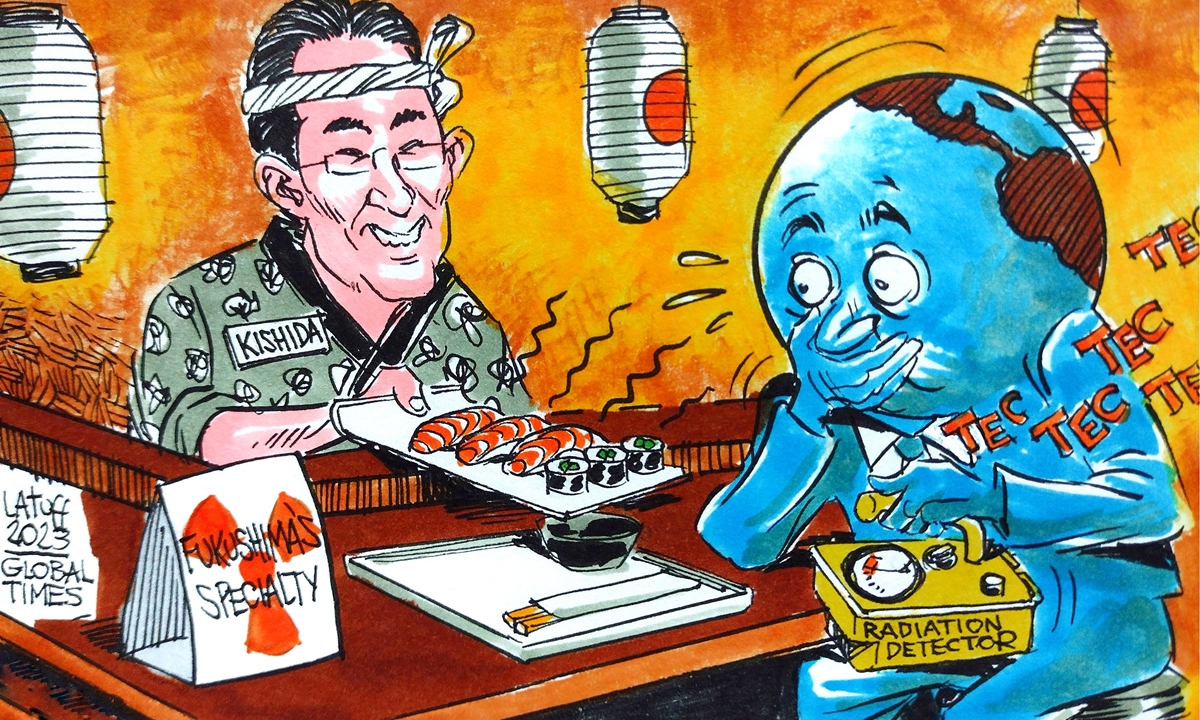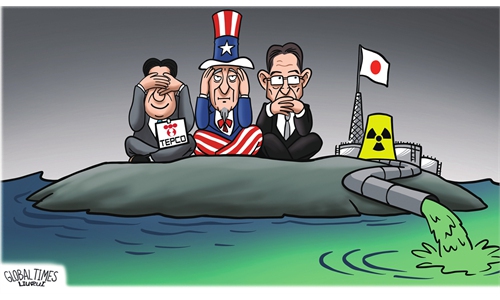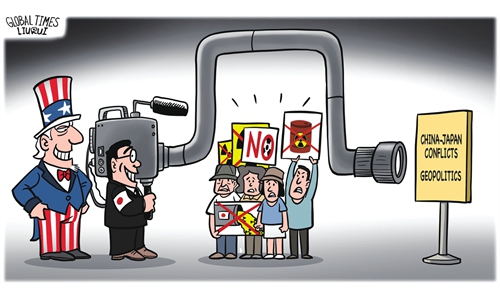US ambassador to Japan’s seafood eating in Fukushima lashed as political show, facing questions from netizens

Japan serves special dish. Illustration: Carlos Latuff/Brazil
The US Ambassador to Japan Rahm Emanuel visited Fukushima and ate local food to show the US' support to Japan, which was criticized by the netizens for his hypocrisy and political show-making, with many asking the ambassador to explain why the US reduced seafood imports from Japan.
Emanuel wrote via his X (formerly Twitter) account on Thursday that Soma's seafood is "a symbol of resilience & recovery." "Enjoyed fresh sashimi for lunch and couldn't resist grabbing some peaches for back home," he tweeted and posted pictures of eating seafood and standing with local fishmen.
In a statement by Emanuel on his visit to Soma city, Fukushima released on Thursday, it said that the US stands firmly with Japan, contrasted with China's "overtly political decision" to ban all Japanese seafood imports.
The moves led wide discussion among netizens home and abroad, with many asking the US politicians to "eat fresh seafood fishing on the spot, or stop making a show."
"Promoting Fukushima's seafood as clean and safe to eat, while also refusing to consume shellfish, sea urchin, octopus, and squid due to concerns about their cleanliness, seems contradictory, doesn't it?" one netizen located in Japan tweeted on August 31, commenting on the US ambassador's move in show of support by eating raw plates of fish from Fukushima. The netzine also said that "I unintentionally zoom in on images and end up checking if there are any scallops or sea urchins on his plate."
Another netizen also located in Japan called the US ambassador a "hypocrite." "[The] US drastically reduced seafood imports from Japan this year," the netizen tweeted on Friday.
The topic related to the US ambassador eating seafood at Fukushima gained more than 20 million views on Chinese-twitter like Sina Weibo as of press time.
Another netizen wrote via Weibo, warning the US and Japan, "do not lift a stone and drop on your own foot."
The US backs the Japanese government's plan publicly to dump nuclear-contaminated wastewater into the ocean, however, media reports quoting data from Ministry of Agriculture, Forestry and Fisheries of Japan indicated that the US was making the biggest moves in decreasing imports of agricultural and aquatic products from Japan in the first half of 2023.
The term "treated water" ignores the facts, which is nothing but Japan's attempt to cover up the harm caused by the dumping of nuclear-contaminated wastewater into the sea and misleads the public and international opinion, Chinese Foreign Ministry spokesperson Wang Wenbin said on Friday in response to Japan's Prime Minister Fumio Kishida's remarks.
It is extremely selfish and irresponsible of the Japanese government to forcibly start discharging nuclear-contaminated wastewater into the ocean, disregarding the strong opposition from the international community, said Wang.
When the relevant Japanese official said, "contaminated water," the official was just telling the truth, said Wang. Shouldn't Japan withdraw its wrong decision to forcibly discharge nuclear-contaminated wastewater into the sea? Shouldn't Japan apologize for its selfish behavior of transferring the risk of nuclear contamination to the world, Wang noted.
Japan started releasing nuclear-contaminated wastewater from the crippled Fukushima Daiichi Nuclear Power Plant into the Pacific Ocean on August 24, disregarding strong opposition and concerns from both home and abroad.
China has been communicating the concerns to Japan on the basis of the science and facts and has engaged Japan bilaterally and multilaterally to repeatedly state the views and concerns from China's professional agencies, Chinese Foreign Ministry spokesperson Wang Wenbin said on Thursday's regular press briefing.
Japan has failed to give a sincere reply and address the concerns. Instead, it has made groundless accusations against its neighbors over their legitimate concerns and eventually forcibly started the discharge of nuclear-contaminated water into the sea. This is not the right attitude or approach to solve the problem, Wang said.
Global Times


